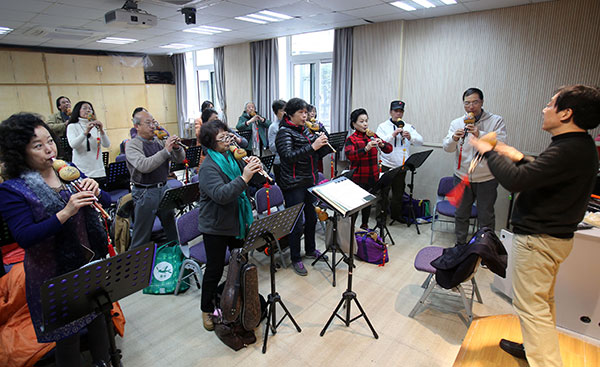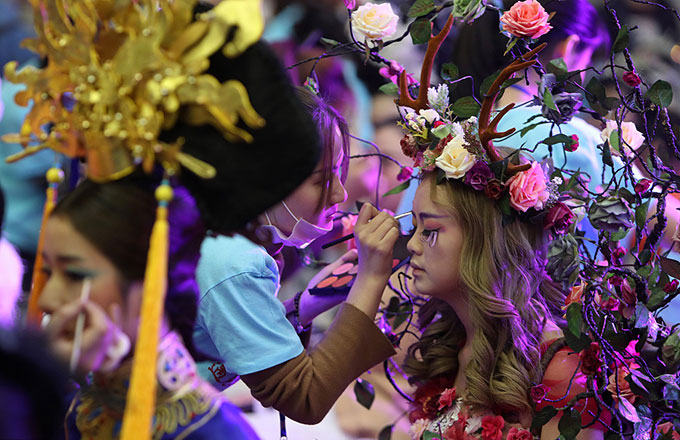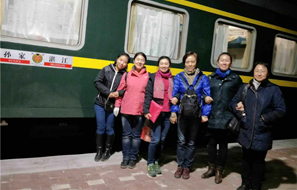Big demand, low supply at schools for elderly
 |
|
Students learn to play the hulusi, or cucurbit flute, at a university for the elderly in Shanghai last year. [Photo/Xinhua] |
Sang Meiying, 74, teaches music every Monday, Wednesday and Friday at Shizuishan's "university for the elderly" in the Ningxia Hui autonomous region. Every Tuesday and Thursday, she takes classes in calligraphy and painting.
"I don't get tired at all," Sang said. "We are teachers and students, and we are friends. The college has filled our lives with color."
China's elderly population is increasing rapidly. Now under a healthy economy, older people are expecting a better quality of life, prompting the birth of training programs.
In 1983, China's first university for the elderly opened in Shandong province. More than 30 years later, there are about 60,000 such schools. More than 7 million people currently study in them, according to a Chinese association of educators for seniors.
"I tried watching TV, dancing and playing cards after retirement. I didn't find any of that very interesting," Sang said.
Sang believes that the more free time you have, the more exhausted you become. "The college has made our lives meaningful again," she said.
Expansion of demand has far outstripped the increase in supply. The admission process is competitive.
"We receive far too many applications every year, and the open spots are limited," said Wan Nianchun, deputy principal of the university for the elderly in Hubei province.
Shandong's college started offering online applications three years ago, said Fu Limin, deputy principal: "People can book a subject with just a few clicks."
The most popular subject is dance. The classes for the fall semester were fully booked seven minutes after applications opened.
The situation is the same in other cities. In Hangzhou, the enrollment rate for the most popular subject is one out of 16 applicants. In Jiangsu, people lined up overnight for a single opening. In Guangzhou, all 35 universities are full every year.
While the colleges are very popular, there is no shortage of complaints. For example: "Some people do not want to graduate" or "It's difficult to secure a place, so I have to study from home."
According to the Jinan city government, 1.3 million people aged 60 or above account for 20.5 percent of the population. However, Jinan can only provide college for 20,000 elderly. The gap between demand and supply is huge.
"The popularity is not just about improved education for our senior citizens; it also reveals a lack of other senior care services," said Gao Liping, deputy director of the Shandong Academy of Social Science's population research institute.
More learning centers for seniors have been written into China's development plan, which projects at least one university for the elderly in each county by 2020.
"I am hoping the government will continue its support for our universities to let more people enjoy learning there," Sang said.
Xinhua
=





















